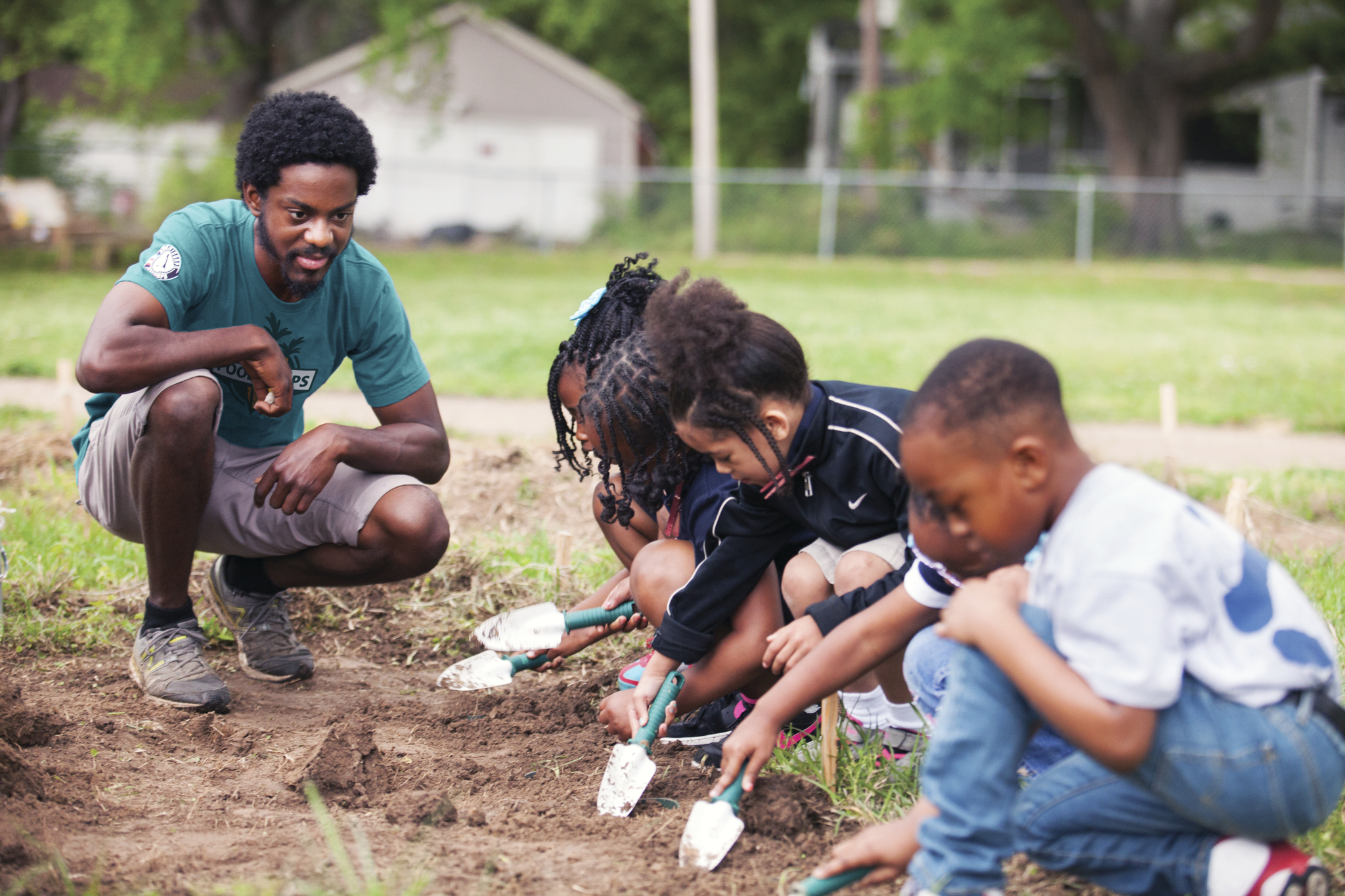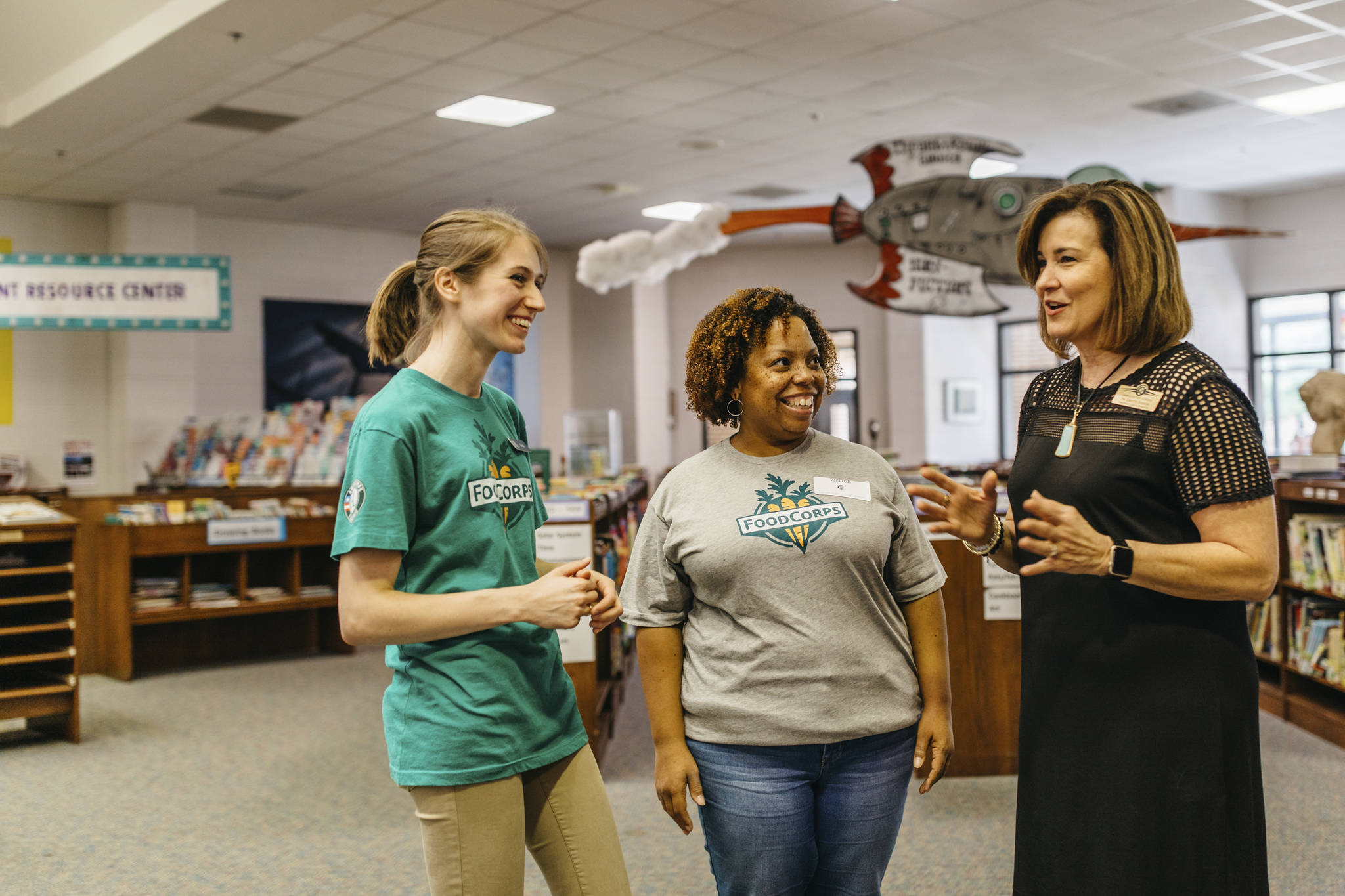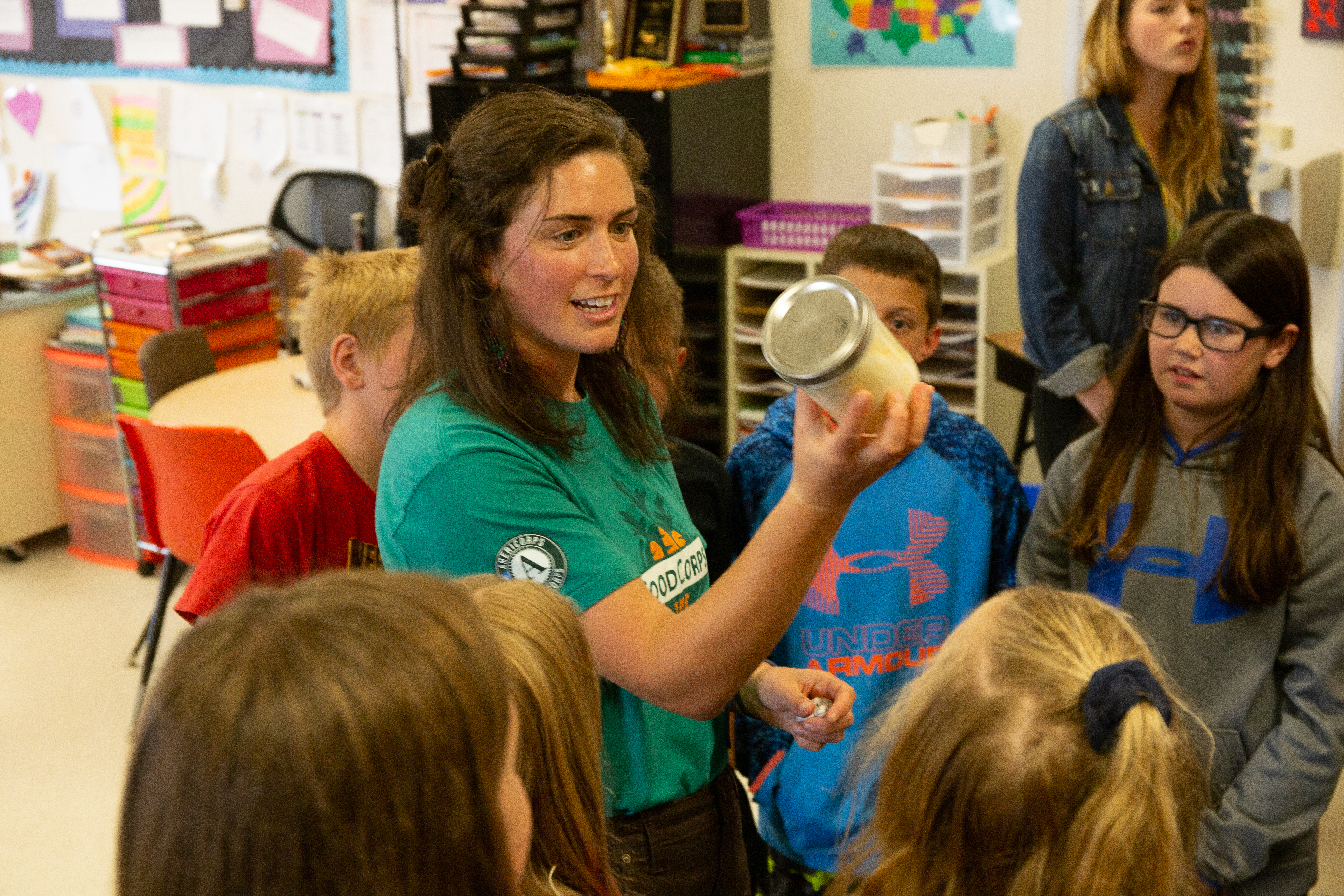When asked where their food comes from, many of today’s young people will exclaim, “the grocery store!” unaware of the processes undertaken each and every day by farmers and ranchers nationwide.
FoodCorps recognizes this knowledge gap and strives to help America’s youth understand where their food comes from and build an appreciation for the farmers and ranchers who make that food a reality. It also teaches students about the vitality of good nutrition, in order to build strong and healthy bodies.
Justice through food access and education
FoodCorps believes that healthy food is a building block for a full life. And it understands that many young people face systemic barriers to healthy food access and education. Structural inequities based on race, geography and class have resulted in health disparities that have taken an unjust toll on children growing up in households struggling to make ends meet, as well as a disproportionate toll on children of color.
In the United States, one in three children are on track to develop diet-related illness in their lifetime and for young people of color, it’s one in two. Children who face these systemic barriers to healthy food are more likely to face a lifetime of challenges: they score lower on tests, miss more days of school, advance less in their careers and raise children who are likely to repeat the same cycle.
FoodCorps sees schools as opportunities: places where its garden, classroom and cafeteria curriculum can help correct these injustices by providing young people access to healthy food, as well as education on how food is produced.

FoodCorps in action
FoodCorps service members support young people in three ways. First, service members collaborate with educators to teach hands-on lessons about cooking, gardening and trying new foods. Second, service members team up with food service staff at schools to develop cafeterias that steer students towards the healthiest options and excite them to the point of trying new foods. And finally, service members collaborate with the whole school community to cultivate a school-wide culture of health in which all members celebrate healthy food.

In the face of crisis
In the lead-up to the COVID-19 pandemic, approximately 170,000 children had access to FoodCorps programming. Its 250 service members engaged more than 68,000 students in hands-on nutrition education lessons and garden-based learning. They conducted nearly 3,000 cafeteria taste tests and delivered more than 21,000 hands-on lessons in the classroom. However, when March arrived, FoodCorps was forced to adapt its education model with nation-wide school closures due to COVID-19.
Many families in communities where FoodCorps serves struggled – facing the reality of lost jobs and income and managing work demands alongside caring for and educating children. To ensure that FoodCorps members’ efforts would be effective, they listened to their communities and acted based on what their students and families said they needed most. This has meant – among other approaches – helping students maintain access to school meals by making home food deliveries; releasing 35+ lesson plans to parents, guardians and caregivers for at-home learning; and providing take-home gardening kits that include lessons and seed packets to facilitate experiential learning.
Reflecting on her experience these past few months, Tara McDaniel, a FoodCorps service member who works with Cedarville Elementary School in Arkansas, said, “I am helping deliver breakfasts and lunches by bus and working on the school garden. I have also focused on tending to the garden and setting up the garden as an open space for families.”
Camille Horton, a service member who works with The Commons in New Mexico said, “I’m focusing on community food security and access-related initiatives in the community, helping to maintain the community garden at my host site and working on my School and Community guide. I am also spending service hours helping to prep for and carry out the food distributions that are planned through the food pantry program of my host organization.”

CoBank is there to help
As a member of the AmeriCorps Service Network, FoodCorps is an AmeriCorps grantee, similar to Habitat for Humanity, City Year and Teach For America. This means their programming receives a portion of their funding from AmeriCorps. However, FoodCorps also depends upon private partnerships, including CoBank, to continue its vital work in communities across the country.
“CoBank is proud to support the great work of the FoodCorps,” said Sarah Tyree, vice president of policy and public affairs at CoBank. “Educating youth about local agriculture and nutrition builds strong communities and creates an appreciation for the agricultural economy.
